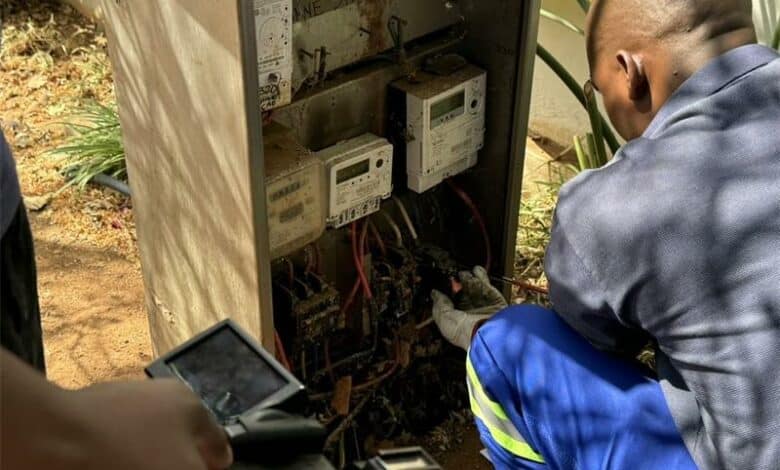News
Tshwane se elektrisiteitskuld beland hul in die hof

**Tshwane Metro Engages in Dispute with Eskom over R6.6 Billion Debt**
The Tshwane metro is currently in a dispute with power giant Eskom over a staggering R6.6 billion debt. According to the metro, they owe Eskom R6.6 billion as of August 31, with R4.5 billion being historical debt and R2.1 billion constituting current debt, as per the August invoice.
This matter between Tshwane and Eskom is now in court, with the next court hearing scheduled for late November. Eskom spokesperson Amanda Qithi stated that the September bill remains unpaid past the due date, highlighting irregular payments made by the city.
Despite facing financial challenges, the metro has fully settled its winter invoices when Eskom bills at a significantly higher rate compared to other seasons. Qithi mentioned that Tshwane had an accumulated arrear debt of R5.2 billion by the end of August, and the two parties are currently involved in a court proceeding.
“The power giant could not reach a payment agreement with Tshwane,” she said.
Metro spokesperson Lindela Mashigo mentioned that the court case commenced on July 17 this year in the North Gauteng High Court. “Due to the extended period allocated for a full trial, the presiding judge requested a postponement until October,” he said.
However, the Deputy Judge President of the High Court, Eskom’s attorneys, and the city have been instructed to prepare for a full trial scheduled for November 26-27.
Mashigo stated that the metro is committed to meeting its financial obligations and maintaining a good reputation with Eskom. “The Tshwane metro plans to comply with the High Court’s judgment, which will be announced after the trial,” he added.
He further added that the metro is striving to meet Eskom’s requirement for the city to fully and promptly settle its current account. “Therefore, Tshwane has paid Eskom’s May and June invoices in full, with only R521 million outstanding from the July invoice (amounting to R2 billion),” he explained.
Despite the city’s previous progress in financial repayment, political unrest has hindered work, jeopardizing previous efforts to restore Tshwane’s financial position. The recent ousting of DA Mayor Cilliers Brink, along with unaudited financial statements indicating a dim glimmer of hope, suggests that the city’s economic rehabilitation remains an uncertain journey.
Brink was voted out by a third motion of no confidence on September 26, with the two previous motions in July and August being withdrawn before voting due to procedural and legal reasons.
ANC councilor Frans Boshielo lodged the most recent motion due to the metro’s debt of R6 billion to Eskom and R15 million to Rand Water, delayed pension fund payments, unnecessary expenses on new appointments, and a late submission of the quarterly audit committee reports.
Former Finance Mayoral Committee member Jacqui Uys stated in September that the 2023/24 financial year, which ended on June 30, showed significant improvement according to the unaudited financial statements.
Brink mentioned that at the current rate, the metro will be “cash-positive” at the end of the next financial year. This, according to him, will enable the city to repay its debt to Eskom in the medium term and restore the city’s banking ability and capacity to finance service infrastructure.
In April this year, the city submitted a payment plan to Eskom, and although it was not approved, the metro claims to have adhered to it and exceeded its payment obligations.
Mashigo added that Tshwane had fully paid Eskom’s May and June bills and would attempt to settle all its future current account invoices in full while continuing to clear the accumulated arrears on the other side.
According to Mashigo, the electricity bill for the last four winter months amounted to R7.2 billion.
“R1 billion was for May, R1.9 billion accumulated in June, followed by R2.2 billion in July, and R2.1 billion in August, with at least R4.6 billion already paid to Eskom in those four months,” he stated.
He mentioned that the city had ongoing discussions with Eskom about bills, but these commitments led to a deadlock. Therefore, the matter is now in court for arbitration.
He said the city has launched a Financial Recovery Plan to improve its financial status in the short to medium term.
“The plan aims to examine the entire value chain of Tshwane’s municipal operations, ensuring that Tshwane collects all revenue due to the metro. This includes exploring new sources of income, managing expenses to be within acceptable and available limits, and ensuring that the metro’s service delivery model is integrated, effective, and efficient,” he explained.
He mentioned that the plan is not a standalone element but forms the core of the metro’s business in each department, contributing to the budgeting process and taking into account all other measures put in place to ensure financial recovery.
“The plan is part of the national and provincial government’s support strategy to ensure that the city achieves financial recovery, leading to an effective and efficient municipality that is financially stable and capable of delivering services to the community on a sustainable basis,” Mashigo concluded.





















